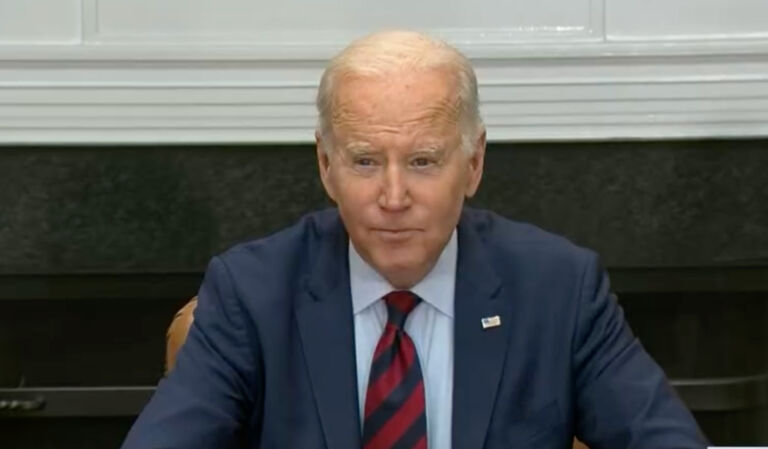The prospect of expanding Medicaid in North Carolina was back in the news recently due to the General Assembly’s return to Raleigh and a newly agreed-upon deal between legislators and the governor of Kansas to expand Medicaid in their state.
Over the past year, I have detailed the problems with Medicaid expansion. Namely, the program is financially irresponsible, it is likely to crowd out the private insurance market, and it will likely increase costs in the private market. In short, the costs will far outweigh the benefits for the citizens of North Carolina.
So why would politicians push such a costly and harmful policy? Public choice economics can help us answer this question.
Public Choice Theory
Public choice theory attempts to take the assumptions of traditional economics and apply them to the policymaking process. Jane Shaw, writing for the Library of Economics and Liberty, explains public choice theory:
Economists who study behavior in the private marketplace assume that people are motivated mainly by self-interest. Although most people base some of their actions on their concern for others, the dominant motive in people’s actions in the marketplace—whether they are employers, employees, or consumers—is a concern for themselves. Public choice economists make the same assumption—that although people acting in the political marketplace have some concern for others, their main motive, whether they are voters, politicians, lobbyists, or bureaucrats, is self-interest.
My colleague, Jon Sanders, who writes about public choice theory extensively, wrote this about the three groups who are usually involved in public choice problems:
Voters face relatively high costs for the small benefit from staying highly informed about government. Any policy that benefits special interests doesn’t cost each voter very much by itself (as opposed to the cumulative cost of policies favoring special interest). So voters, acting out of their own self-interest and best use of their resources, tend to be relatively ignorant about all the ins and outs of government and lawmaking. It’s different for special interests. The benefits they receive from favorable laws are concentrated and large, and so are the costs to them from losing such laws. So acting out of self-interest and best use of their time and money, they tend to be involved in lobbying, informing, and seeking to influence public policy. There’s another group involved, too, and they are also acting out of their own self-interest: the politicians making the laws. They tend to hear most from (and benefit most from) the special interests. They’re unlikely to hear much from everyone else, who stand to lose just a little as special interests gain a lot.
Medicaid Expansion as a Public Choice Problem
So, voters, politicians, and special interests all are involved in this policy dilemma. All three of these groups are acting in their own self-interest while pushing their preferred policy. Jane Shaw further describes the outcome of such a dilemma:
In other words, because legislators have the power to tax and to extract resources in other coercive ways, and because voters monitor their behavior poorly, legislators behave in ways that are costly to citizens.
The Medicaid expansion debate captures this phenomenon: uninformed or disengaged voters, profit-maximizing special interests, and self-interested politicians.
Legislators in the General Assembly are considering spending taxpayer dollars to expand a public insurance program that would benefit a small, targeted population. This policy proposal would very likely raise health care prices in the state. But those costs increases may not be enough for people to notice because they have become accustomed to sizable increases and diminished benefits due to decisions made by previous officeholders. If North Carolinians expect higher prices, then they will be less likely to question why the prices are higher.
Special interests, namely the hospital lobby and their allies in health insurance and provider groups, have the most significant incentive to expand Medicaid because they stand to gain the most. North Carolina Democrats and Governor Cooper have proposed to pay for the 10 percent state share of Medicaid expansion with hospital taxes and taxes on prepaid health plans. Unless the hospitals and insurance companies intend to absorb millions in new layers of taxes, these costs will be passed onto consumers in some form. In addition, hospitals, on the whole, will receive substantially more in return in the form of Medicaid payments that they will pay in the tax.
Medicaid expansion advocates tend to invoke the thought of massive health care sector job growth as a possible outcome of expanding Medicaid in the state. My John Locke Foundation colleague Roy Cordato has explained in the past that we should be skeptical of job creation estimates. These economic impact models often fail to include opportunity costs, which would more accurately reflect the reality of job creation in the health care field: fewer jobs in the rest of the economy and quite possibly higher health care prices.
Moreover, consider the impact of Medicaid expansion on the individual insurance markets. When a state expands Medicaid, the number of private insurance enrollees tend to decrease. This could either be from a plan or employer no longer offering coverage to someone who qualifies for Medicaid or from individuals choosing to drop private insurance for the taxpayer-funded Medicaid coverage. Massive drops in enrollment in individual markets could lead to negative consequences for those who purchase their insurance on their own, such as higher premiums that raise the cost of private insurance.
It is foolish to believe that taxpayers won’t ultimately pay for a government-sponsored public policy program, including the hospital tax used to fund roughly $300 million a year in potential state obligations. Moreover, the federal government promises to fund 90 percent of the program. It’s easy for state politicians to justify a policy proposal when the federal government promises to foot most of the bill. Yet, the taxpayer-funded federal government currently runs about a yearly trillion-dollar deficit, which adds to the $23 trillion debt. All new appropriations are funded by new debt, which will have to be paid by taxpayers.
But today’s elected officials will not be in office when the bill comes due, so they have no incentive to act out of a concern for the long-term consequences of their actions. Instead, they have an incentive to act in ways that will provide immediate political and financial benefits. Expanding entitlements attracts support from recipients of the programs, who then have an incentive to vote for the politicians that conferred the benefits. Moreover, collecting hospital and provider lobbying dollars fill campaign coffers, increasing the likelihood that the elected official will be reelected.
If politicians were truly interested in “helping people,” they would limit the amount of taxpayer money flowing to special interests through entitlement programs and unleash the power of competition and information in a free health care market.


